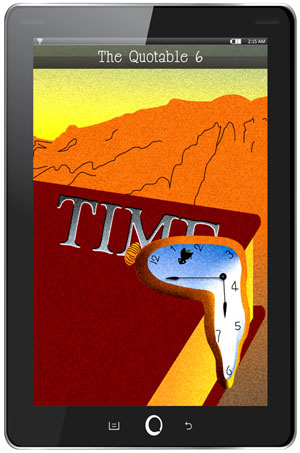I surveyed my neighborhood like I imagined a criminal might. Across from my house stood two empty ones, windows boarded up—easy copper. Just three lots over, a house with chipped paint, overgrown grass and a sagging, neglected porch made itself another target. A fourth house stood ripe for the trucks and the vagabonds and the thieves—Aisha, Carl and their daughter had moved from it before the final notice posted. They left in the middle of a Thursday night so as not to draw the neighborhood’s attention. Still, their leaving woke me, as if I could sense their friendship evaporating from the street. I’d crept to the window and used my index finger to raise the blind slat and did not turn on the lights during my vigil.
I watched and waited again, now, because the vans liked to enter our neighborhood early on Mondays to catch people at work or sleeping or still hung-over. The first time the red box van drove into the neighborhood, I couldn’t make out the lettering, but after the fifth time, I knew the yellow-sprayed letters said “C U Move.” Its engine had a distinct rumble-and-cough that vibrated the single pane windows and shook my lungs and rattled my stomach and stopped my heart as if I were at my old elementary school’s fair watching the prize-winning wheel spin to a stop. Two police cars always followed, just in case.
I knew the ear-splitting screech of the metal roll top door would sound as soon as they located their target, and I thought today they would stop at Gabriela’s faded-yellow bungalow, or Keshi and Aditi’s pastel-blue Craftsman across the street. They would come for us, but I did not think they would come so soon. After all, only four months had passed. Most people hit six, and sometimes the rumor mill spoke of someone reaching nine or, as if having hit the lottery, twelve months.
For what seemed the millionth time, I imagined what I would do when it was our turn: my scramble for paperwork and photographs and all those other items we felt we couldn’t live without and so had boxed in preparation. I imagined my hurried steps to a neighbor’s phone to call Dylan’s work—we’d turned off the landline months ago. I pictured myself stoically standing on the sidewalk as they emptied the house while the neighbors with well-trimmed lawns, perfectly-straight porches and fresh-painted exteriors happily watched it all go. Not that there was much left of our possessions, not after the selling blitz three months before, or the zoning fine we’d paid because a neighbor reported us holding more garage sales than permitted in a six month period.
A rumble-and-cough drew my attention back to the street. The early sunlight bounced off the red hood and into my eyes as the van drove into our neighborhood. Two police cars, lights off, followed the van as it shot past Gabriela’s bungalow. I waited for them to stop at Keshi’s place, but then the red box van stopped in front of our house, and it rode up onto the sidewalk all the way to the first pathway stone, and it blocked the neighborhood and the sun and the hope. I dropped the blind, back-stepped to the very center of the living room and shut my eyes. I willed them to knock on someone else’s door and then held myself from shaking to pieces, like my father had helped me practice after the many times I returned home from a bad day at school.
I could see my father clearly, how he’d always waited in the front yard for me to come home from the fifth grade, the grade I remember the most for all the wrong reasons. He usually kept his hands behind him, holding back some kind of present—almost always an orange, his favorite afternoon snack. The unspoken rules of our game: first my father would ask, “How was school?” and then I shared a good story before winning whatever he hid.
One day I didn’t want to play. I didn’t want to talk about fighting the girl who’d called me ‘foreigner’ and said she wished my mother died from her cancer. I brushed off his question and headed for our front door, books heavy in my arms.
“What happened?” he’d asked.
I’d stopped and stared at the grass and then shook my head, my braid whipping across my back. I yearned for a hug, but fifth grade was the year I decided to stop acting like a baby.
I felt a tug on my braid. “Here.”
I turned and saw my father offering me one of his hands. “Make a wish,” he said, and held out a wish-flower even though I hadn’t followed any of our rules.
I imagined how my breath might release the feather-like pods to gallop into the air and travel a chaotic path away. But I felt too old to fall for these tricks anymore. I forced the spines of my textbooks to dig bruises into my arms. “This is stupid.”
“Okay. Try this.” He brought out his other hand.
Air caught in my throat. He held the largest bouquet of wish-flowers I’d ever seen, inches from my face. Dozens of globes hung together by the barest of connections, blotting out the rest of the world. Each stalk contained potential, hundreds of seeds ready to tornado into the sky and then blanket the yard, maybe land on Mrs. Harrit’s grass and anger her when they sprouted in a week.
I took a deep breath.
Before I exhaled, my father used all his strength to blow.
A rushing wall of pods plunged into the air around me. Feathery tails twirled across my cheeks, eyebrows, into my open mouth. I smelled the oranges my father loved.
He blew again, hard enough to snuff out fifty birthday candles, his cheeks puffed into a pair of red balloons and I couldn’t prevent my smile or the giggle that materialized deep in my throat, because yes, he’d gotten me, was getting me and oh what a good trick!
I dropped my books and searched the grass. Broken stalks poked from the yard like bent drinking straws. I laughed while brushing seeds out of my mouth. “Did you pick them all?”
He waved his hands at the pods still floating in the air. “Just about.”
The seeds settled into a white carpet on the grass and did not pay attention to property lines. I couldn’t wait for the look of horror on Mrs. Harrit’s face once hundreds of wish-flowers grew up in her perfect lawn. Then I saw it—a scraggly stalk with half the seeds already blown off the flower head, hiding in the crack where the house met grass—it was enough. “Mrs. Harrit is going to be mad,” I said.
He looked toward Mrs. Harrit’s front door. “Promise you won’t tell on me?”
“Okay.” I picked the flower and hid it behind my back. “But only if you get my books.”
“Done.”
I crept closer and readied my attack stance. I blew at the wish-flower as he turned, but he blew at the same time. The seeds twirled as if caught in a hurricane, some going this way, some going that way.
My father laughed. I giggled as a couple of seeds caught in his eyebrows and disappeared into his gray-streaked hair.
“I think your father wins this round.”
We froze at the sound of my mother’s voice. It came out of nowhere, reminding me we were still three, though no one knew how much longer that might last.
She leaned against the door post. I noticed she wore sweats, not a bathrobe. One of her good days.
“You both look like you’re wearing very silly white hats,” she said.
I ran fingers through my hair, pulled out a handful of white tufts and stuffed the seeds into my pockets for my collection.
My father stepped onto the porch and kissed my mother’s cheek. “Did I tell you how,” he said, turning back to where I stood in the grass, “when we first moved here, your mother returned to her old neighborhood to pick some wish-flowers? She couldn’t find a single one growing on the whole block here. To your mother, this was a travesty.” He lowered his voice and glanced toward Mrs. Harrit’s house. “So your mother walked the neighborhood, under the cover of night, and blew an entire flower’s head of seeds into each front yard, for five houses down, in both directions and both sides of the street.”
“But I didn’t plant anything!” My mother laughed. “I was like a strong breeze, nothing more.”
“I don’t think the neighbors would agree.” He winked at me.
She replied, “Well, too bad—”
Something pounded on the door and police lights pulsed bright against my closed eyelids, interrupting. Though there was no emergency, in spite of what they wished me to believe, they did not cease running their engines on the sidewalk of my neighborhood, sending fumes into the air, combusting gas for no reason, hiding behind uniforms and logos and notices. They turned my house into something foreign, something to fear, something that would never be the same.
Before I scrambled for the paperwork and the pictures and the boxes, before I hurried to the neighbor’s house, before I stoically watched them trample mud on a carpet no longer my own, I searched for the small cardboard envelope left out by chance on a side table after analyzing and packing and selling. I hadn’t known then if I should place it in the Stay or the Go pile. The envelope’s edges were worn from age. Only faintly doodled flowers remained as a label from when I had packed away the seeds in wait for my own home.
I stepped out my front door. I walked past the police to the sidewalk and ignored the flashing lights, and my neighbors, the ones who had come to watch but avoid eye contact.
I tore a corner of the cardboard envelope, and then pinched out a portion of the seeds and flung them away. The police approached and their hands hovered over their unhooked holsters. The tufted pods wavered, unsure if they belonged, then ignored wooden fences, imaginary property lines, made-up zoning codes. Each seed followed a separate cork-screw path and parachuted into the grass, planting themselves deep.
—
Jamie Thornton calls Northern California home. She graduated from UCLA with a degree in Anthropology and is part of the Wordforge writing group. She lives, rather happily, with her husband, dog, a garden, a viola and a bicycle. She is currently working on several short stories and a novel. Follow her at jamiethornton.com.










